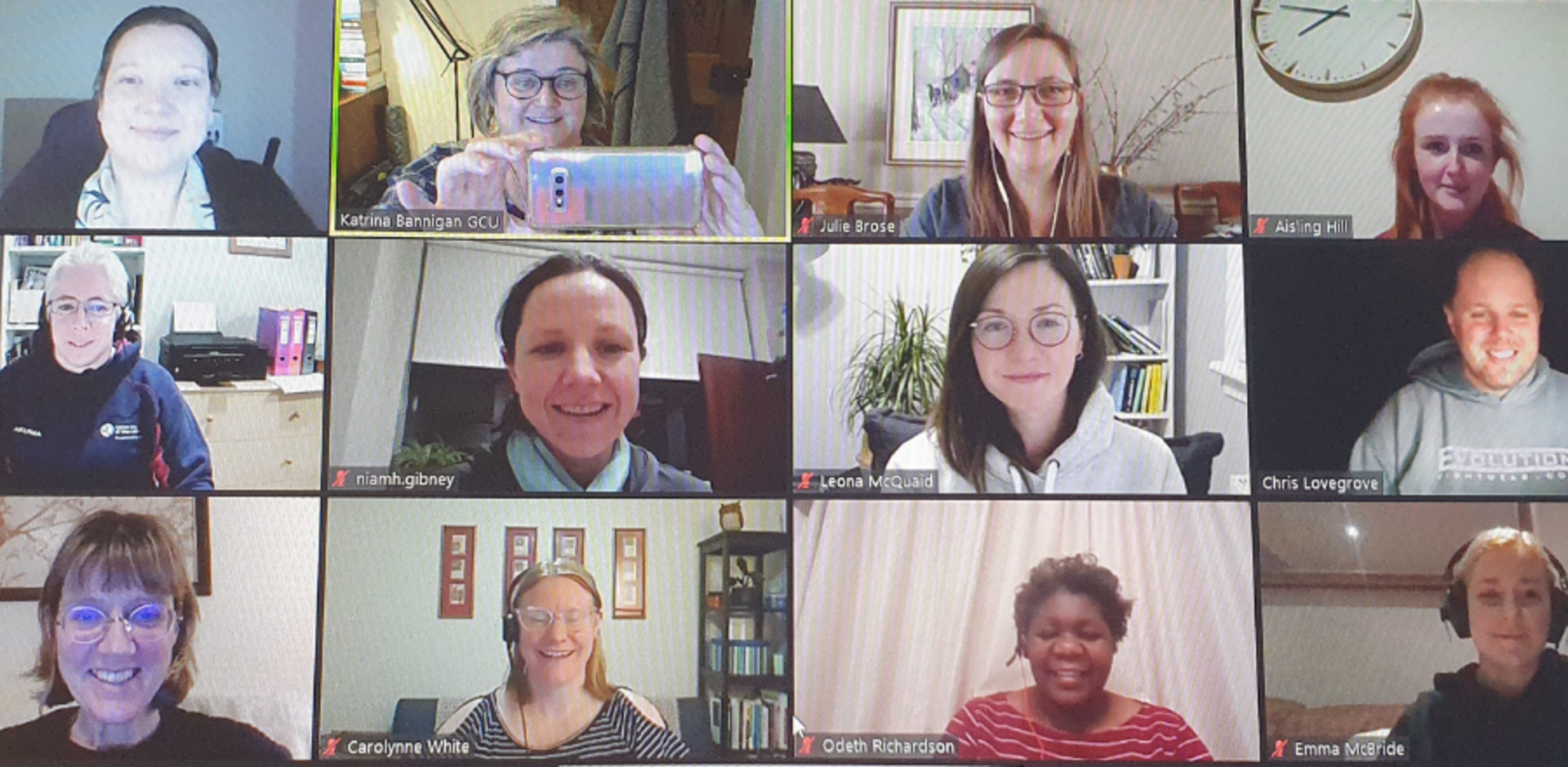New GCU-led Occupational Therapy Writing Group goes global

A new writing group launched by GCU’s Head of Occupational Therapy Dr Katrina Bannigan has been a global success attracting academics, practising occupational therapists and students from all over the world.
Dr Bannigan, who is an occupational therapist researching complex interventions, has around 40 people attending the virtual meetings from as far afield as Australia, Canada and Chile, and her Twitter page @otwg_gcu already has over 400 followers.
She launched the group to bring people involved in occupational therapy together to help them focus on writing and publishing research papers, blogs, conference abstracts, funding applications and manuals during the COVID-19 pandemic.
Dr Bannigan, who is also Head of Human Nutrition and Dietetics, is delighted with the success of her online Occupational Therapy Writing Group and has had some amazing feedback from attendees since the launch at the beginning of February.
She said: “The response to my Occupational Therapy Writing Group has been phenomenal, attracting people from all over the world. I thought it was a good idea but didn’t expect it to take off so quickly. I’ve had some great feedback too.
“The reason I launched the group was because I know how hard it is to find time to write, especially in the middle of a pandemic, we can’t prioritise scholarly activity during working hours and it is difficult to focus on writing on your own, but we still have things we’ve got to write and complete. We also know that people who write in groups are more productive.”
Last year Dr Bannigan invited the University of West of Scotland Professor of Education Rowena Murray, who is an internationally recognised expert and author on academic writing, to a department away day and she was so impressed she now uses Rowena’s writing principles in the writing group like turning off distractions, starting with a goal and writing for 90 minutes.
“It's a really informal group. We start off by introducing ourselves, share what goals we are going to focus on and then, after turning off distractions, we write for 90 minutes because 90 minutes is the most productive period for writing. Some people keep their videos on during the writing period and others turn their off. At the end we share our progress with goals and reflect on what we’ve achieved during the sessions,” said Dr Bannigan.
“In the group we have a mix of academics, students, occupational therapists who have gone back to university to develop their career, occupational therapists who need to write a treatment manual or increase their professional development and occupational therapists who are doing a PhD and others who are writing funding applications. It really is worthwhile, fun and a good way to stay connected with the wider occupational therapy community during the global pandemic.”
